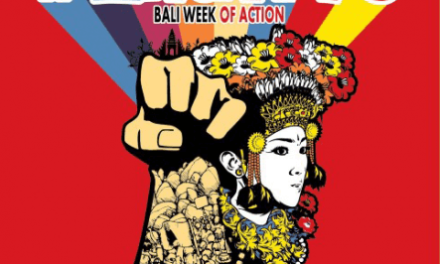It is clear from experiences across Asia, Africa and Latin America that the WTO has again failed the workers and producers of the south, as virtually all the development friendly provisions of the Doha Ministerial Declaration couched in the rhetoric of ‘Doha Development Agenda’ remain unrealized. Discussions at the meeting show that the WTO continues to be a platform for large corporations and their government backers to push developing and low-income countries into binding commitments, resulting in a loss of sovereignty, food security and policy space, and violation of human rights for large sections of society.
Discussions highlighted the lack of preparedness by the Commerce ministry and inadequate consultative process in the run-up to the Cancun ministerial. The only alliances the Commerce ministry is forming is with business lobbies; important constituencies such as legislators (at the centre and state level), trade unions, farmers groups and civil society are kept out of the process of informing and shaping the national position on Cancun.
A primary concern raised by parliamentarians at the meeting is the absence of sufficient institutional mechanisms by which the Central Government can be held accountable to the Parliament for trade and investment negotiations. In fact, parliamentarians representing Congress (I), Communist Party of India (CPI) and Communist Party Marxist (CPM) recommended that the Indian Constitution be amended to establish a separate and permanent Standing Committee in Parliament on WTO issues. The gathering further suggested that such a Committee should ensure interaction with civil society at regular intervals. Also, participants agreed that the Central Government should be required to seek trade-negotiating authority from Parliament and all agreements negotiated should be subject to ratification before implementation.
In conclusion, participants at the consultation call upon the Government of India (GOI) to share necessary information and documents, and work with all constituencies to arrive at a negotiating position that meets the diverse needs of its citizens. At the Cancun ministerial we urge the GOI to:
Proactively protect the interests of small and marginal farmers, fishers and agriculture labour in negotiations relating to the Agriculture and Fisheries sectors.
Refrain from making any binding commitments under the GATS, especially related to public services. Instead, India must push for a complete standstill on negotiations until the implications of existing and further liberalisation commitments have been fully assessed and publicly debated.
Assert the urgent need for the completion of Implementation related issues and operationalisation of all clauses of Special and Differential treatment.
Argue for a review and hence flexible interpretation of the TRIPS agreement to ensure compulsory licensing under all circumstances for public health objectives. Furthermore, the ambit of the TRIPs agreement must be severely restricted so as to remove from its coverage, patenting of any and all forms of life.
Firmly oppose demands to launch negotiations on the 4 Singapore issues: Investment, Transparency in Government Procurement, Trade Facilitation and Competition Policy.
Ensure that trade and investment commitments do not compromise India’s ability to meet its human rights obligations.
Unless the above issues are appropriately addressed, India and other developing countries must reject the Ministerial Declaration that comes out of the Fifth Ministerial Meeting in Cancun. Indian citizens demand that the GoI not succumb to any pressures for last minute compromises in Cancun. Under no circumstances should the developmental priorities of the people of India be traded away in the name of multilateralism







